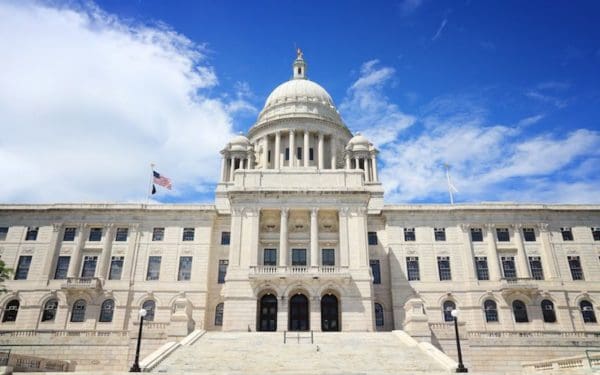
While no wind projects have been denied a permit under LePage's moratorium, none have been proposed, either. Photo: ZU_09 via IStock
Last month, a Maine Superior Court judge dismissed CLF’s lawsuit against the LePage administration’s executive order that places a moratorium on new wind power developments in most of the state. CLF had taken the administration to court over the January order, claiming that it violated Maine’s constitution.
The judge dismissed the case on the grounds that CLF and the Maine Renewable Energy Association, which had joined us in the lawsuit, could not prove the order had harmed any proposed projects. But the reality is that as long as the executive order moratorium stands, no project developer in her right mind would submit a new project application.
As has become the norm over the last eight years of the LePage administration, the true losers in this case are not CLF and our co-plaintiffs. They are the people of Maine, our pursuit of energy independence, and our ability to create good, local jobs in a thriving new industry.
LePage Administration Admits that State Agencies Will Not Follow Order
In court, LePage’s own lawyers at the Attorney General’s office admitted that the executive order could not be followed legally by staff at the Department of Environmental Protection, the agency that reviews and approves project permits. But they argued the court need not address the merits of the case as long as no specific projects had been denied permits.
Unfortunately, the Superior Court bought into this reasoning. In dismissing the case, the judge ignored the commonsense conclusion that any businessperson would draw from an order issued by a chief executive to the agencies headed by people he appoints and who serve at his pleasure – investing the enormous amount of time and money required just to prepare an application in the face of such a clearly worded moratorium would be literally tilting at windmills.
Judge Leaves the Door Open to Future Suit
Despite this, the Court’s opinion holds some value and offers potential pathways for challenging the order in the future.
First, as noted by the Court, Maine’s DEP submitted sworn statements that it intends to “ignore the plain meaning” of the Executive Order and will process wind power development applications according to existing law. So at least the agency is on record that it is not bound by the moratorium.
Second, the Court clearly does not buy the Governor’s defense that his executive order “does not mean what it appears to say,”noting that if that were the case, the Governor could have simply clarified “the Executive Order to reflect its true intent.”
And third, the Court makes it clear that if CLF or the Maine Renewable Energy Association can provide it with an example of a wind power project that has in fact suffered direct harm because of the executive order, the Court will take the issue up again.
A Shift in the Wind in November Could Make the Issue Moot
At the end of the day, LePage’s Executive Order has done what it was surely intended to do – no new wind power project applications have been submitted since it was issued. While the courts may still be an option to challenge this clearly illegal order, it is more likely that the “court” of this year’s gubernatorial election will be the ultimate arbiter of this wrongheaded Executive Order and more broadly the wrongheaded energy policy of the last eight years. Elections matter, and each of our voices will be more important than ever this year.



